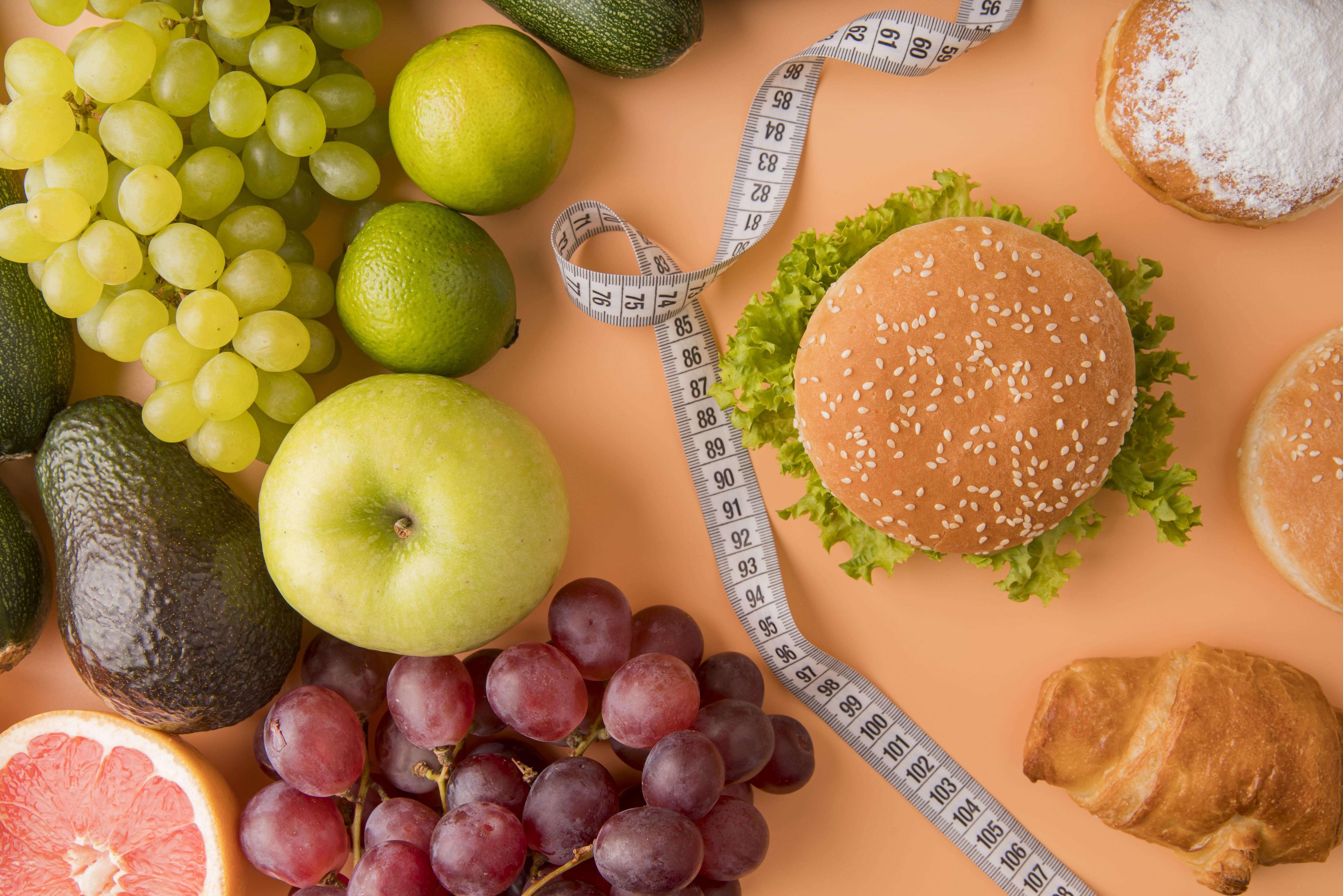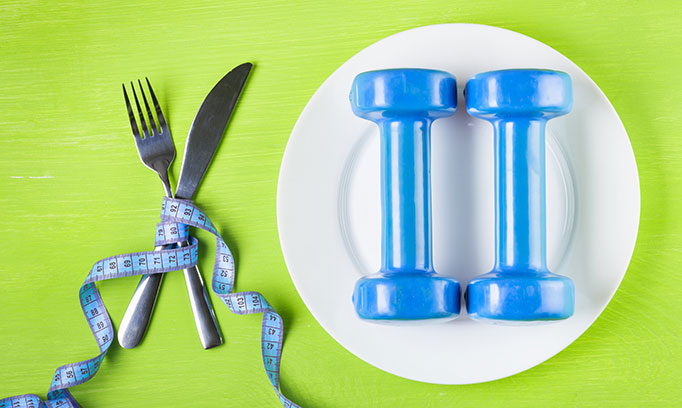
Research suggests that exercising can reduce or prevent several chronic diseases. Moderate exercise has been shown to reduce the risk of developing certain types. A regular exercise program can reduce the risk of developing diabetes and cardiovascular diseases, which are both linked to obesity. These conditions are more common in people who exercise regularly, and this can be prevented.
There are many benefits to exercising. It has been proven to improve the memory and concentration, reduce the risk of depression and insomnia, prevent heart disease, lower cholesterol levels and blood pressure, promote bone health, and enhance the immune system. It is also an excellent anti-inflammatory agent because it increases WBCs. This could be a way to avoid many diseases. Exercise is being recommended as a treatment for chronic illnesses because of its many benefits.

The benefits of exercise are transdiagnostic, which means that they may differ according to the symptom you experience. Exercise can help improve sleep quality, mood, stress relief, and anxiety. Exercise can also help reduce the risk of developing diabetes, heart disease, stroke and other diseases. These diseases can be prevented by exercising. Exercise is also a great way to keep your weight healthy and improve your overall health.
According to the Mayo Clinic there are 29,000,000 people with diabetes in America. Most of these people are unaware of their condition and have never been diagnosed. Study of heart attack victims showed a 20-25% reduction in mortality relative to those who were not part of the study. Other studies also showed higher mortality reductions. A large review of studies from previous years concluded that those who have had a heart attack and were able to exercise rehabilitation were more likely live longer.
Regular exercise has many benefits for your health. It can increase quality of your life and lower the risk of various diseases such as type 2 diabetes and cardiovascular disease. Exercise can lower your risk of developing other health issues, such as anxiety, dementia, and depression. These are just two of many benefits of exercising. It is vital to exercise and stay active to avoid chronic diseases. Exercise offers many other benefits.

Regular exercise has been linked to a lower chance of developing many chronic diseases. You can lower the risk of complications such as high blood pressure. It can also help improve your overall health. Research on heart disease has shown that stroke prevention can be achieved by increasing your physical activity. This means that cardiovascular disease risks are lower if you exercise more. If you're overweight, exercise will help you lose excess weight.
FAQ
How to Lose Belly Fat Fast
There are many fast ways to lose belly fat. One method is to eat less and drink lots of water.
A second way to boost your metabolism is by running and swimming.
If you want to remove belly fat quickly, you should also avoid sitting down for too long. Instead, get up and move around throughout the day. This will help reduce calories.
You don't have to give up on trying all of the above methods if you still struggle with your belly fat.
You will need a belt to do this. The belt is designed to fit around your waist while you are sitting down.
This will make you feel uncomfortable and allow you to move about. This forces you to burn more calories and reduces your belly fat.
Is it true that kidney stones can be caused by overeating protein?
Protein is important for maintaining healthy bones and tissue. However, too much protein can result in calcium excretion through the urine. This can lead to kidney stones.
It is important to keep in mind that not everyone will develop kidney stones if they consume more protein than 2 grams per kilogram (2.2lbs). Some people can eat high amounts of protein without getting kidney stones.
You can prevent kidney stones by watching your sodium consumption. The kidneys regulate the amount of sodium they consume. A high level of sodium can increase the risk of developing kidney stone.
If you have kidney stones, you can reduce your intake of protein. About half of adults' daily caloric intake is made up of protein. If you cut back on protein, you'll likely lose weight.
If you do decide to eat more protein, don't go overboard. Do not eat more than 20% of your daily calories from protein.
Do weightlifting burn fat faster?
Weight lifting does burn fat faster, but only if you combine it with cardio workouts.
You should do weightlifting after your cardio workouts to maximize its benefits.
When done correctly, weightlifting increases your heart rate and oxygen consumption which helps you lose weight.
However, if you don't combine it with cardio you won't see any significant changes to your body composition.
Which workout is best to build muscle?
Two main types of exercises are required for building muscle mass. These include isolation exercises and compound movements. Isolation exercises target particular muscles, while compound movements focus more on several groups at once.
You can improve your workouts by choosing exercises that challenge all major muscle groups. This ensures that you are always working hard during each session.
To keep track of what you have done, use an app called MyFitnessPal. It allows you log everything, including calories burned and weight lifted. You can also make custom meal plans according to your goals.
What's the Best Way to Lose Weight?
It can be difficult to lose weight. Many people give up easily because they don't know what to do.
There are simple steps you can take in order to lose those extra pounds.
First, make sure you eat less calories than you burn. You will gain weight if you eat more calories than you burn.
For all of those extra calories to be burned, it is important that you exercise regularly. You have the option of doing jogging or walking or cycling, as well as dancing.
Third, stop smoking and drinking alcohol. These habits can cause you to consume more calories that you would otherwise.
Fourth, you should cut back on junk food. They can be replaced by healthier options, such as fruits and vegetables, lean meats or whole grains, legumes, seeds, beans, and nuts.
Fifth, it is important to make lifestyle changes and develop new habits. You might need to get up earlier every morning to do some exercise before going to work.
Sixth, you must be disciplined and follow your diet plan.
Finally, you have the option to join a gym and take part in an aerobics session to burn off those extra calories.
You will quickly notice the difference by following these simple tips.
How do I build muscle quickly?
It is important to eat healthy food and lift weights frequently in order to quickly build muscle.
The best time to work out is early morning when you are fresh and ready for action!
Exercises such as push-ups and bench presses are good options.
Consider trying different weight training programs and drinking plenty of water throughout each day.
Statistics
- 10 pounds in a month is likely during a lean bulking phase, especially for beginners. (muscleandstrength.com)
- The PRS enabled risk stratification for overall prostate cancer and lethal disease with a four-fold difference between men in the highest and lowest quartiles (HR, 4.32; 95% confidence interval [CI], 3.16-5.89). (pubmed.ncbi.nlm.nih.gov)
- An estimated calorie range for moderately active adult males falls between 2,200 to 2,800 calories per day, depending on age. (eatright.org)
- According to the American Academy of Dermatology (AAD), men over 50 are at a heightened risk of developing it. (healthline.com)
- Cardmembers earn 5% Back at Amazon.com with a Prime Credit Card. (amazon.com)
External Links
How To
How can I burn fat while exercising?
Exercise reduces calories by increasing metabolism, and oxygen consumption.
At moderate intensity, you will lose weight easily.
These tips will help you burn fat and keep fit while exercising.
-
Do cardio exercises such as walking, swimming, jogging, cycling, running, or elliptical training.
-
For 30 minutes, do it three times a week.
-
Add strength training to your workouts if you are looking to lose more weight.
-
Avoid intense training. You can build muscle and not break down muscle tissue.
-
Drink plenty of water during exercise. Water flushes out toxins and helps keep the body hydrated.
-
After working out, make sure to drink low-fat proteins shakes. Protein shakes boost energy and repair muscle tissue.
-
Eat smaller meals throughout the day, so you don't feel hungry between meals.
-
Don't skip breakfast! Skipping breakfast can cause you to feel tired and sluggish.
-
Take care to your mental well-being. Stressful situations can affect your metabolism.
-
Keep a positive attitude. Research shows that overweight people gain more weight if they believe they are overweight than those who believe they look good.
-
Get enough rest. Insufficient sleep can make it more difficult to lose weight.
-
Stay active. Make sure you get up and move every hour.
-
Maintain a healthy diet. Eating right keeps you feeling full and satisfied longer.
-
Find ways to relax. Your body won't release stress hormones that cause muscle tissue destruction if you have a tense mind.
A balanced diet will provide all nutrients that are necessary for growth.
Consider eating six small meals daily instead of three big ones. This gives your body time and energy to process the food.
To maintain strong bones, you need to consume 500 mg of calcium each day. Calcium is available in dairy products like milk, yogurt, fortified soy beverages, orange juice, cereal, bread, and cereals.
Calcium is found in green leafy vegetables, beans, tofu, seeds, nuts, and cheese.
Vitamin D is essential for calcium absorption. Vitamin D can be found in egg yolk, fatty fish, and other fortified foods.
Vitamin E is vital for your skin's health. Vitamin E can be found in vegetable oils as well as wheat germ oil, peanuts and almonds.
Your body requires zinc for normal immune function and wound healing. Zinc can also be found in legumes, oysters, meats and whole grains.
Zinc deficiency could cause fatigue, nausea, vomiting, and depression.
Too much sugar leads to insulin resistance. This results in higher blood glucose levels. Insulin resistance causes weight gain.
High levels of free radicals can lead to insulin resistance. Free radicals refer to molecules that contain unpaired electrons. They can damage cell membranes and other body parts.
Food additives, pesticides and herbicides, as well as preservatives, smoking and radiation are all sources of free radicals.
Free radical damage can lead cancer, heart disease or diabetes, arthritis, asthma, or other forms of aging.
The best way to avoid free radicals is to eat a balanced diet high in antioxidants. Antioxidants protect against oxidative damage.
Vitamin C, beta carotene (found within citrus fruits, carrots, sweet potatoes and spinach), Vitamin E (found inside nuts, olive oils, avocados and eggs), and Vitamin C (found among mangoes.
Selenium, manganese (and zinc) are other antioxidant nutrients.
Selenium protects cells from free radical damage. Selenium may be found in Brazil nuts as well tuna, liver and kidneys. It can also be found on shrimp, cod, turkey, beef lamb, pork, chicken, and other foods.
Copper protects your eyes, brain, eyes and red blood cell. Copper can be found in shellfish and poultry as well as meat and organ meats.
Manganese forms an essential part of bone structure. Manganese is found in brown rice, spinach, bananas, prunes, raisins, oatmeal, and lentils.
Zinc is required for normal growth, reproduction and wound healing. Zn can also be found in white fish, lean cuts of meat, poultry, and eggs.